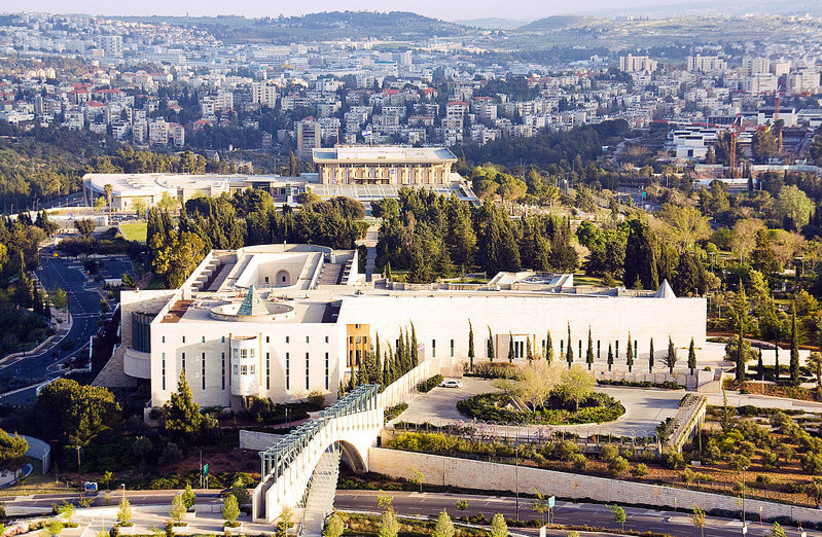President Isaac Herzog’s Sunday night plea for unity and compromise included many positive elements. Herzog explicitly identified that the Knesset, as the representative of Israel’s citizens, is the sovereign. He underscored the legitimacy of the democratically elected government to pursue its policies and advance reforms.
He also highlighted the homogeneous nature of the Supreme Court and called for its diversification. Most importantly, he recognized that the reform proposals stem from the Supreme Court’s imperialism and breach of Israel’s traditional balance of powers.
While Herzog sounded many of the right rhetorical points, his compromise proposal is incomplete. It does not adequately address the central aim of the government’s reform legislation: putting an end to Israel’s juristocracy and restoring popular sovereignty.
The Supreme Court has taken over Israel
During the past 30 years, the Supreme Court has carried out a judicial takeover, with its powers ever-expanding, without any legal or constitutional mandate. Judicial rule is conversely proportional to an ever-narrowing ability of Israel’s citizens to rule themselves.
Until the 1990s, Israel’s constitutional system was a parliamentary democracy, in the British Westminster model. In 1992, the Knesset passed the Human Dignity and Liberty: Basic Law, with only a minority of its members even voting. The protocols and statements of the Knesset members and leading jurists from that fateful session show a clear lack of intent to grant the Supreme Court the power of judicial review.

Like Napoleon grabbing the crown from the pope’s hands and placing it on his own head, the Supreme Court, under the leadership of its former president, Aharon Barak, seized the opportunity to crown itself emperor.
Soon after the passing of the Basic Law, Barak announced a “Constitutional Revolution” in which the court was empowered to strike down laws. The opening shot in the Supreme Court’s power grab flew under the radar. The infamous 1995 Mizrahi Bank decision, in which the court first reviewed Knesset legislation, was issued only a few days after the Rabin assassination, while the country was still in shock and mourning.
With every passing year, the court’s power only grows. The Supreme Court has abandoned the need for “standing,” which limits petitions to those specifically harmed by laws or administrative actions. This has turned the court into an alternative policy-making forum. The court is not bound by justiciability, a doctrine that limits it to strictly legal questions.
The court regularly issues rulings on security, foreign policy, immigration and economics. Despite nearly 30 years of calls for change, conservative judicial appointments have not reined in activism. The judges’ veto in the Judicial Selection Committee guarantees that jurists who threaten the prevailing paradigm will never be appointed.
The Supreme Court has not yet finalized the Constitutional Revolution but it has flirted with the idea – granting itself the power to strike down Basic Laws. The court would then become the all-powerful creator, interpreter and master of the Israeli constitution. This would effectively end Israel’s citizens’ ability to determine the constitutional system under which they live, due to the court’s constant veto power. There is no example of any Western democratic country where the court has the final say on a yet-undrafted complete constitution.
MORE SPECIFICALLY, where is the president’s proposal insufficiently clear? Firstly, any plan to change the Judicial Selection Committee’s composition that does not remove the judges’ veto is meaningless. Judicial appointments must be placed in the hands of elected officials, as is the norm in democratic countries worldwide. This will guarantee a judicial composition that reflects the diverse values in Israeli society.
Secondly, Herzog should clarify that the passage of a Basic Law that would establish a special procedure for legislating Basic Laws must be subsequent to the reform plan. In 1995, nine judges in one legal decision irrevocably changed Israel’s constitutional status. It is absurd to demand that the elected government clear even more hurdles before amending the situation. The Knesset must restore popular sovereignty before it anchors the Basic Laws.
Thirdly, Herzog leaves his vision of “reasonableness” ambiguous. Reasonableness is one of the court’s main tools of activism in its arsenal. By virtue of reasonableness, the court determines political appointments, makes policy decisions instead of the legally responsible authorities, and even determines who can serve in or lead the government.
Supporters of the reform must heed the president’s call for negotiations. However, any resolution must be based on the citizens’ right to decide how to govern themselves. Otherwise, Israel will continue to be ruled by philosopher-kings in judges’ cloaks.
The writer, a lawyer, is a researcher in the legal department of the Kohelet Policy Forum.
